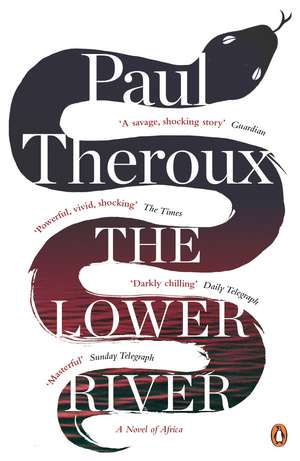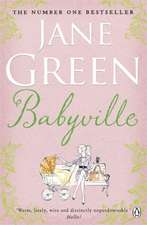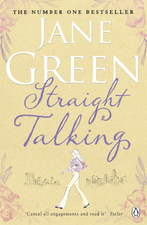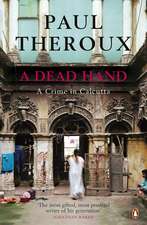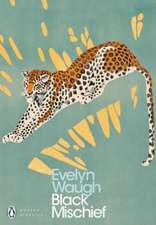The Lower River
Autor Paul Therouxen Limba Engleză Paperback – 3 apr 2013
Decades ago Massachusetts salesman Ellis Hock spent four years in Africa - and the continent has never left him. So when his wife walks out and his business goes belly up, Ellis turns back to the one place in which he briefly found happiness.
Yet returning to the village of Malabo shocks him. The school he built is a ruin. The people he remembers are poor, apathetic, hostile. The country labours as if under a great, invisible burden. However, Ellis is determined. This is his escape, a paradise regained.
But escape can be a snare, a trap for the unwary . . .
The Lower Riveris a hypnotic, compelling and brilliant return to a terrain no one has ever written better about than Paul Theroux: the tragic stage of modern Africa, AIDS-ravaged and despairing in the face of creeping consumerism, greed and dependence.
'Remarkable, admirable, riveting, heartbreaking. A masterly, moving portrait of how Africa ensnares and enchants'Guardian
'Terrific writing. Theroux's senses are always on full alert'Evening Standard
'Powerful, vivid, shocking'The Times
'Theroux invests this very 21st-century journey into the heart of ennui with a caustic bite, like the snakes that pop up throughout'Metro
'The sense of menace is masterful. Theroux has never written a better novel'Sunday Telegraph
American travel writer Paul Theroux is known for the rich descriptions of people and places that is often streaked with his distinctive sense of irony; his novels and collected short stories,My Other Life,The Collected Stories,My Secret History,The Stranger at the Palazzo d'Oro,A Dead Hand,Millroy the Magician,The Elephanta Suite,Saint Jack,The Consul's File,The Family Arsenal,The Mosquito Coast, and his works of non-fiction, including the iconicThe Great Railway Bazaarare available from Penguin.
| Toate formatele și edițiile | Preț | Express |
|---|---|---|
| Paperback (2) | 100.30 lei 3-5 săpt. | +9.63 lei 6-12 zile |
| Penguin Books – 3 apr 2013 | 100.30 lei 3-5 săpt. | +9.63 lei 6-12 zile |
| HarperCollins Publishers – 6 mai 2013 | 108.44 lei 3-5 săpt. |
Preț: 100.30 lei
Nou
Puncte Express: 150
Preț estimativ în valută:
19.19€ • 20.52$ • 16.00£
19.19€ • 20.52$ • 16.00£
Carte disponibilă
Livrare economică 27 martie-10 aprilie
Livrare express 12-18 martie pentru 19.62 lei
Preluare comenzi: 021 569.72.76
Specificații
ISBN-13: 9780241957745
ISBN-10: 0241957745
Pagini: 336
Dimensiuni: 129 x 198 x 20 mm
Greutate: 0.23 kg
Editura: Penguin Books
Colecția Penguin
Locul publicării:London, United Kingdom
ISBN-10: 0241957745
Pagini: 336
Dimensiuni: 129 x 198 x 20 mm
Greutate: 0.23 kg
Editura: Penguin Books
Colecția Penguin
Locul publicării:London, United Kingdom
Notă biografică
Paul
Therouxhas
written
many
works
of
fiction
and
travel
writing,
including
the
modern
classicsThe
Great
Railway
Bazaar,The
Old
Patagonian
Express,
My
Secret
HistoryandTheMosquito
Coast.
He
won
the
Edward
Stanford
Award
for
Outstanding
Contribution
to
Travel
Writing
2020.
Paul Theroux divides his time between Cape Cod and the Hawaiian islands.
Paul Theroux divides his time between Cape Cod and the Hawaiian islands.
Recenzii
"Theroux’s practiced hand in the matter of dialogue and scene-making is strongly in evidence....It’s a particular kind of frightening fun to watch evil flexing and spreading its leathery wings, and really feel it. The Lower River gives the reader just that." -- The New York Review of Books "The Lower River is riveting in its storytelling and provocative in its depiction of this African backwater, infusing both with undertones of slavery and cannibalism, savagery and disease. Theroux exposes paternalism in Hock’s Peace Corps nostalgia, his ‘sense of responsibility, almost a conceit of ownership.’ That sense of responsibility, and Hock’s modest contribution to the welfare of a people he was once genuinely fond of, has been replaced by a harsher mode of operation, run by coldhearted contractors living apart in impregnable compounds. ‘I have to leave,’ Hock pleads. ‘I’m going home.’ To which the village headman replies, with chilling menace, ‘This is your home, father.’ " -- New York Times Book Review “Theroux’s bravely unsentimental novel about a region where he began his own grand career should become part of anybody’s education in the continent.”—Washington Post
"In this hypnotically compelling fiction, [Theroux] wrestles with questions of good intentions and harsh reality...A gripping and vital novel that reads like Conrad or Greene—in short, a classic." -- Booklist, starred "Theroux successfully grafts keen observations about the efficacy of international aid and the nature of nostalgia to a swift-moving narrative through a beautifully described landscape." -- PW, starred "Extraordinary...The suspense is enriched by Theroux’s loving attention to local customs and his subversive insights...Theroux has recaptured the sweep and density of his 1981 masterpiece The Mosquito Coast. That’s some achievement." -- Kirkus, starred "Theroux's latest can be read as straight-up suspense, but those unafraid of following him into the heart of darkness will be rewarded with much to discuss in this angry, ironic depiction of misguided philanthropy in a country dense with natural resources yet unable to feed its people." -- Library Journal —
"In this hypnotically compelling fiction, [Theroux] wrestles with questions of good intentions and harsh reality...A gripping and vital novel that reads like Conrad or Greene—in short, a classic." -- Booklist, starred "Theroux successfully grafts keen observations about the efficacy of international aid and the nature of nostalgia to a swift-moving narrative through a beautifully described landscape." -- PW, starred "Extraordinary...The suspense is enriched by Theroux’s loving attention to local customs and his subversive insights...Theroux has recaptured the sweep and density of his 1981 masterpiece The Mosquito Coast. That’s some achievement." -- Kirkus, starred "Theroux's latest can be read as straight-up suspense, but those unafraid of following him into the heart of darkness will be rewarded with much to discuss in this angry, ironic depiction of misguided philanthropy in a country dense with natural resources yet unable to feed its people." -- Library Journal —
